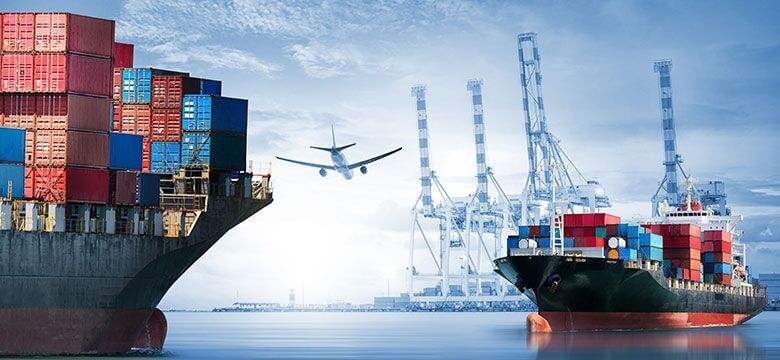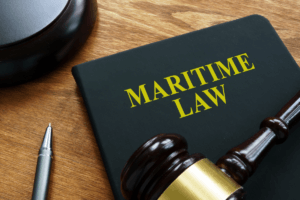
Federal maritime law generally governs legal actions involving injuries at sea, in port, or on an oil rig. Although many maritime injury cases are heard in state courts, these courts must apply the principles of federal maritime law. However, state law may govern some aspects of the compensation process in state court.
The intersection of state and federal maritime law is complex and constantly shaped by new cases. That is why it’s essential for you to work with the experienced maritime lawyers at The Krist Law Firm, P.C. We have provided guidance for individuals bringing claims against their employers for decades, and we are ready to interpret complicated legal details for you.
What Is Maritime Law?
Also known as admiralty law or the “law of the sea,” maritime law has evolved from the earliest days of the United States to include modern shipping and resource extraction activities. Rather than a specific statute, maritime law includes multiple legislative acts pertaining to injuries that happen at sea or on the navigable waters (rivers, wetlands, and lakes) of the U.S.
Part of the nuance of interpreting whether maritime law applies comes when defining whether the waters were navigable. If the incident happened on land or in a body of water that is not deemed as navigable waters, state or federal law may apply instead. Some examples of when your lawyer may argue a case under maritime law include:
- Commercial accidents that result in seaman injuries and / or damage to vessels and cargo
- Damage to cargo or crew injuries from unsecured freight during transport
- Injuries to a sailor or seaman sustained during work duty on a commercial fishing vessel
- Insurance claims when cargo or ships are lost during a storm
- Piracy and other criminal acts against an ocean-going vessel
If the case involves a property dispute, it will always be held in a federal court. However, if the claim is over product liability or personal injury, then the circumstances of each individual matter will determine whether a federal or a state court has the appropriate jurisdiction.
Maritime Legislation Protecting Those Injured or Lost at Sea

The Jones Act
Also known as the Merchant Marine Act of 1920, the Jones Act focuses on providing compensation to seamen injured when working on a vessel. Shipowners are legally required to provide a safe working environment and sufficient equipment to their crews at all times. When they fail in this duty and offshore workers are injured as a result, the victims can sue under the Jones Act.
They can recover maintenance and cure (described below) as long as at least 30% of their work time is on a vessel at sea. Victims are eligible for payment to cover their medical bills, lost wages, emotional distress, and pain and suffering.
Longshore and Harbor Workers’ Compensation Act (LHWCA)
The LHWCA provides protection for workers whose primary duties are at ports, ship terminals, wharves, docks, and shipyards. This Act provides similar compensation for these employees as that awarded under state workers’ compensation laws.
Claimants can seek financial relief for their medical costs and lost income and may be eligible for short- or long-term disability payments if they cannot work while recovering. This law only applies to maritime workers who do not qualify to bring a legal action for compensation under the Jones Act.
Maintenance and Cure
Maintenance refers to weekly payments (typically between $15 and $30 per day) made when an injured seaman cannot work. Cure is financial coverage of medical expenses so the worker can recover. Available under the Jones Act, maintenance and cure payments are mandated for injured employees, regardless of whether they pursue legal action to hold the shipowner accountable for negligence.
Death on the High Seas Act (DOHSA)
When a seaman dies at sea because their employer or the shipowner was negligent, the surviving family can file a Death on the High Seas Act claim. The plaintiffs can present evidence of the employer’s negligence or that the vessel was unseaworthy. They must do so within three years from the date of death to meet the statute of limitations under the Act.
Does Maritime Law Apply to Land-Based Activities?
In addition to coverage under the LHWCA, other aspects of maritime law can be used when filing claims involving the following land-based activities:
- Loading and unloading cargo
- Shipbuilding and repairing vessels
- Harbor operations
- Salvage activities
- Towing
If you are injured when working in these activities, an offshore injury attorney will carefully examine how maritime law may be used to your benefit. They will gather evidence showing where the incident occurred, your status as a seaman or longshore worker, the nature of the work, and its connection to maritime commerce.
Maritime Lawsuits Based on Federal Law Can Be Filed in State Courts

However, a plaintiff may choose to file their lawsuit in state court, even if the claim is based on federal maritime law. This means that if you are an injured sailor, you may file a Jones Act claim in either a state court or federal court. Similarly, an injured oil rig or dock worker may also sue in state court, even if their claims are based on the federal Outer Continental Shelf Lands Act or Longshore and Harbor Workers Compensation Act.
A State Court May Apply State Law When Adjudicating Federal Maritime Cases
Legal cases involve two kinds of law: procedural and substantive. Procedural law dictates how the court will hear the case. Substantive law, on the other hand, dictates how people can or should behave. For example, the Jones Act is substantive in that it gives a sailor the right to sue a negligent ship owner. The rules of evidence, on the other hand, are procedural because they dictate how a court may hear evidence in a legal case.
When a state court hears a federal case, it must apply federal law on substantive matters, even if the federal law contradicts state law. However, the state court is free to apply its own procedural law. In fact, it must use its own procedural rules because there is no basis for a state court to apply federal procedural law.
How might this affect you? Generally, state courts are considered to favor plaintiffs slightly more than federal courts. Federal procedure tends to make it more difficult for injured plaintiffs to successfully prove their cases since there may be more intermediate steps between filing a lawsuit and going to trial.
Joint and Several Liability in Maritime Law Cases
The substantive federal laws that state courts apply in maritime law cases can be beneficial to a plaintiff. Beyond the fact that federal law gives a sailor the right to sue for negligence in the first place, federal law also includes the concept of joint and several liability, which is not recognized in all states. This doctrine states that each party that contributed to your injury is equally liable for your injuries, no matter how minimal that contribution may have been.
Joint and several liability means that all parties who are deemed at fault are equally and fully responsible for compensating your damages in a successful claim. If one party is unable to pay their apportioned liability, all other defendants are required to make up the difference so that the plaintiff receives the full amount. If one party is found 40% responsible but can only provide 10% of the financial compensation awarded, the other parties are generally compelled to pay the other 30%.
Potential Recoverable Damages in a Maritime Injury Lawsuit
Maintenance and cure are provided for injured workers under the Jones Act, but filing an offshore injury lawsuit gives the victim a chance to receive financial relief for their many additional expenses and loss. For example, most cases involving maritime law will involve economic and non-economic damages. These can include:
- Loss of benefits and insurance
- Prescription medications
- Travel expenses for medical appointments
- Medical and mobility devices
- Home services, such as cleaning, cooking, and maintenance
- Anxiety and depression
- Emotional distress
- Loss of enjoyment of life
- Loss of society from isolation and embarrassment
- Scarring and disfigurement
- Permanent disability
If you become unable to return to your job and are so severely injured you will never work again, your maritime injury lawyer will help you calculate the extent of your losses. The goal will be to ensure you can comfortably adjust to your new life without worrying about how to support yourself and your family.
How Our Maritime Lawyers Can Help
Choosing between federal and state court is an important strategic legal decision in your maritime injury case. In practice, the way maritime cases are handled varies between state and federal courts, even if the same laws are generally being applied. When there is a question about whether state or federal law applies to your case, you want the help of a seasoned maritime lawyer like Scott Krist.
At The Krist Law Firm, P.C., we are dedicated to helping maritime workers obtain the maximum possible financial compensation after an injury. To learn more about how we can help, contact us today to arrange a free, no-obligation case review.

